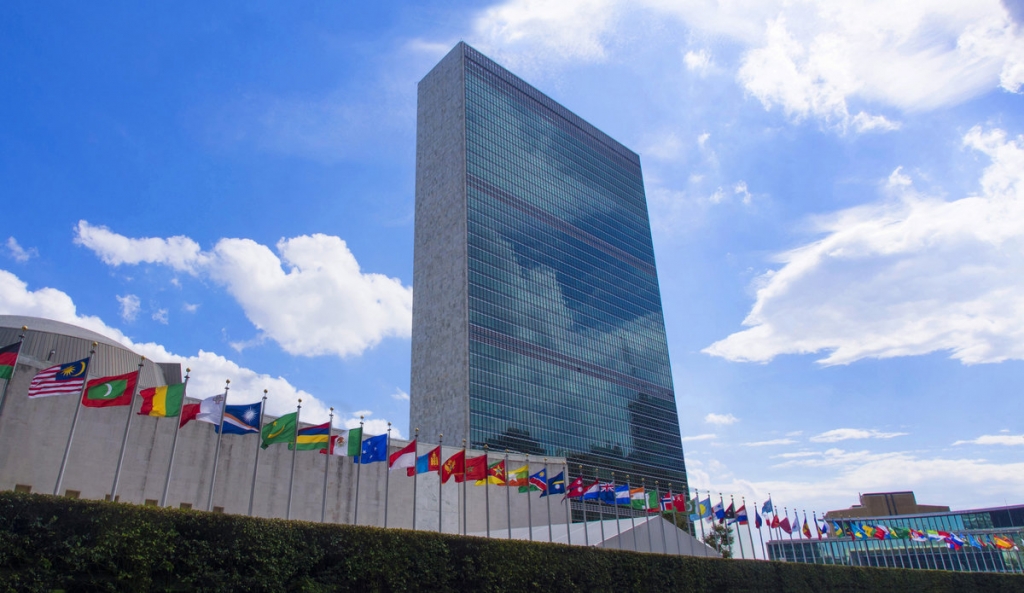Statement by Deputy Permanent Representative Gennady Kuzmin at UNSC open debate "Protection of Civilians in Armed Conflict: Wars in Cities - Protection of Civilians in Urban Settings"
Mr.President,
Prime Minister,
We welcome you as President of the Security Council. We thank the Secretary-General for his participation. We are also thankful to the President of the International Committee of the Red Cross, and to Ms.Mutawakel for their updates and insights.
We once again thank the delegation of Norway for raising the issue of eventual armed action in urban settings. It is positive that the topic of protection of civilians remains in focus of the Security Council, that has accumulated a considerable bulk of decisions and statements on this issue.
In order to minimize casualties among non-combatants, we need to exercise a responsible approach to the norms of the international humanitarian law. The need to uphold these norms becomes even more urgent when it comes to armed action in densely populated areas.
Urban warfare has a peculiar feature: civil and military facilities often are intertwined in urban environment. Therefore, it is crucial to use precise and verified information when planning the operations. It is unacceptable to strike using UAVs or other methods of remote combat, proceeding from unverified intelligence data. American drone striking a family with children on 29 August 2021 in Kabul was a real tragedy and a clear example of how things should not be done. Unfortunately, there have been quite a number of such cases in the world recently.
In general, member states of NATO and various “coalitions for democracy” have huge negative expertise on our today’s topic. Quite often, they would bomb city areas without a view of gaining military advantage, but rather for the sake of revenge, punishment of unwanted governments or political intimidation. Everyone remembers air strikes against Belgrade’s city center and other Serbian populated areas in spring 1999.
Nor has anyone forgotten the root causes and methods of warfare in Iraq and Libya.
Another bad example of urban warfare is the offensive of Ukrainian army on its own civilian population. Today, against the backdrop of a phantom threat that allegedly comes from Russia and that is deliberately inflated, Western states keep charging Ukraine with weapons and military advisers, and encouraging Ukraine’s provocations instead of making Kiev implement the Minsk Agreements. It means that children, women, and seniors of eastern Ukraine will keep dying in this undeclared war that the Kiev authorities have waged on them for several years by now.
Mr.President,
Terrorist groups that take part in armed conflicts in Syria and some African states pose a very serious threat to civilian population. Opposing sides, militants, and terrorists use what is designed as a civil facility (schools, hospitals, etc.) for military purposes with growing frequency. We strongly condemn this practice. Such irresponsible behavior turns this sort of infrastructure into legitimate targets under the international humanitarian law. As a result, it puts the lives of civilians in danger. We believe the practice of using civil facilities as “cover-ups” and local population as a “human shield” is shameful and despicable.
Mr.President,
In general, we think that 1949 Geneva Conventions and Additional Protocols provide sufficient contractual legal framework for protecting civilians and civil facilities, i.a. in the circumstances of urban warfare. Norms of the international humanitarian law are flexible enough to ensure that precaution measure taken at the stage of military planning strictly correspond to the combat context and minimize possible damage. Urban environment must be no exception.
“Loose” interpretation of the international humanitarian law, as well as elaboration of countless “innovative” constructs to fill in the alleged gaps in the IHL in fact only erode the established international legal norms. We must not undermine this body of rules. Equally, we must not let the IHL become a tool of political manipulation.
Thank you.
